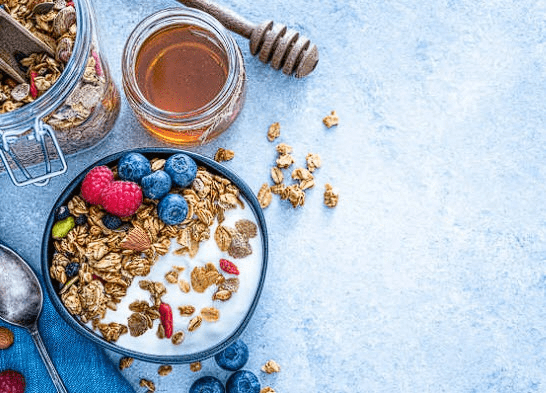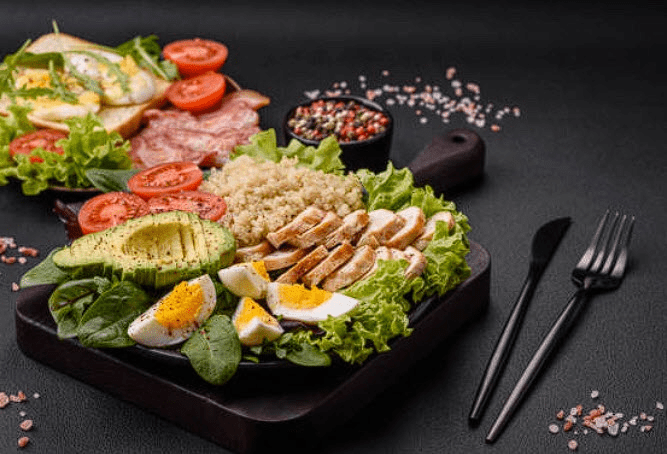If you’ve ever experienced muscle cramps or soreness after a workout or activity, you know how uncomfortable it can be. Fortunately, some foods can help your muscles recover and alleviate soreness. But what’s the easiest way to consume these foods for maximum benefit? One simple solution is to make smoothies! You can easily blend foods like bananas (which contain potassium to help prevent cramping), spinach (which is full of antioxidants to reduce inflammation), and protein powder (which aids in muscle repair). Plus, you can quickly bring a smoothie on the go for a quick recovery snack. Remember, taking care of your body post-workout body recovery is just as important as the workout or exercise performance!
How Can Muscle Recovery Foods Help?
So, you’ve just finished a strenuous workout and are now wondering what you should eat to help with muscle soreness. You’re lucky because muscle recovery foods are here to save the day! These foods help your body to improve energy, reduce soreness, and grow those muscles you’ve been working so hard on. Proper nutrition after strenuous exercise is key to maintaining a healthy body; muscle recovery foods can help immensely. So, if you want to get the most out of your workout routine, fuel up on these best muscle recovery foods to give your body the essential nutrients needed to heal and grow.

Sweet Potato
Look no further than the sweet potato if you’re looking for a snack that will support muscle growth and healthy body tissues during training. Not only is healthy fat full of vitamin C and copper, which help maintain muscle cells and aid in growth and repair, but it’s also a great source of complex carbohydrates that can replenish drained energy levels. And there is no need to feel guilty about satisfying your fry cravings – peel and slice an orange spud, add the spices of your choice, and bake them in the oven for a healthy and delicious treat. So next time you’re hungry, grab a sweet potato instead of a bag of chips – your body will thank you!
Blueberries for Anti-Inflammatory Polyphenols
Did you know that blueberries are a great fruit for muscle growth and reducing inflammation? Yup, these little blueish-purple fruits contain antioxidants called anthocyanins that have been shown to inhibit muscle inflammation. And it’s not just hearsay- a study conducted in 2012 found that evidence suggests that blueberries accelerate muscle healing and improve strength after exercise. Not only that, but they also have the added benefit of lowering blood pressure in women. So next time you’re at the grocery store, stock up on some delicious and nutritious berries to keep your muscles happy and healthy!

Cottage Cheese
Are you looking for a protein-packed option to restore your muscle mass? Then cottage cheese might be the perfect food for you! With 16 grams of protein and three grams of carbs, it’s a great way to boost your muscle recovery and increase muscular development better muscle recovery. Plus, cottage cheese contains casein protein that slowly digests into your body, providing long-lasting fuel for your muscles. And did you know that consuming 30g of casein protein 30 minutes before sleeping can improve your muscle tissue recovery process? That’s right! So next time you’re at the grocery store, remember to grab some cottage cheese to fuel your body’s recovery.
Whey Protein for Post-Workout Recovery
If you value fitness and sports nutrition and take caring for your body seriously, you know the sensation of muscle soreness all too well. You may feel the urge to skip a meal or two or reduce your protein intake, even though you know it’s crucial. That’s where whey protein comes in as a post-workout recovery supplement. It’s a healthy and nutritious meal that provides high-quality protein, essential amino acids, and branched-chain amino acids (BCABs) necessary for optimal recovery after working out. It’s also easily digestible, making it an optimal protein source that won’t leave you feeling bloated or sluggish. Adding whey protein to your daily exercise routine also can ease muscle soreness and help you maintain the protein necessary to keep your body healthy and strong.
Natural Probiotic Foods for Faster Recovery and Less Soreness
If you enjoy working out, you know how annoying and painful it is to deal with sore muscles. But did you know that consuming natural probiotic foods can help speed recovery? While probiotics are primarily associated with gut health, research has found they also have anti-inflammatory properties that can reduce muscle soreness after a workout and aid muscle recovery. Of course, not all probiotics are created equal, so choosing the suitable natural sources is essential to maximize their benefits. Incorporating yoghurt, kefir, kimchi, sauerkraut, and other fermented foods can help improve your gut health and reduce muscle inflammation. Remember that this won’t necessarily make your soreness disappear overnight, but it can help you recover faster and feel less discomfort.

Greek Yogurt with Granola and Berries
Are you looking for a delicious and nutritious breakfast to start your day on the right foot? Look no further than Greek yogurt with granola and berries! This tasty combination offers a whopping 13 grams of protein for sustained energy throughout your morning, and adding blueberries and raspberries provides unique health benefits. Loaded with vitamin C and potassium, blueberries can help bolster your immune system and promote healthy bones and muscles. Meanwhile, raspberries pack a punch of antioxidants to help fight inflammation and oxidative stress. So go ahead, and indulge in this tasty breakfast treat with the confidence that you’re fueling your body with plenty of wholesome goodness!
Salty processed foods
Did you know that craving salty processed foods after a workout is normal? Sweating during intense exercise often decreases the amount of water your body can absorb, leaving your tastebuds thirsty for something salty. While reaching for a bag of chips or fries is tempting, consider a smoothie instead. Not only are smoothies packed with nutrients, but some research suggests adding ingredients like milk can help soothe sore muscles after a challenging workout. So next time you feel snacky, grab a blender instead of a bag of chips and give your body the post-workout fuel it deserves.
Can Fruits Help Reduce Muscle Soreness?
Are you tired of being sore after a workout? Try adding some just fruit to your post-workout snack. Fruits like tart cherry juice, cherries, pineapples, and kiwis contain anti-inflammatory compounds and enzymes that can help reduce muscle soreness and improve healing abilities. In particular, tart cherries are a great source of anthocyanines – compounds that help rebuild muscle tissue and reduce inflammation. Pineapples contain bromelain enzymes that help keep muscle damage and inhibit inflammation, while kiwis contribute to collagen formation and tissue repair. So next time you feel the burn after a tough workout, grab a snack with fresh fruit and enjoy the relief.
What are the best foods for recovery?
Incorporating healthy foods into your diet can be immensely beneficial if you want to recover from an injury. Foods like salmon, berries, nuts and seeds, and animal organ meats are great options that offer a multitude of nutrients and essential vitamins your body needs to heal. Remember to add cruciferous vegetables and shellfish to your plate. And when it comes to carbs, sweet potatoes are your friend. They provide healthy energy and are loaded with important vitamins and minerals that can help accelerate your recovery. So next time you reach for a snack, keep these top foods for muscle recovery as tasty, healthy options to help you bounce back.
What foods should I avoid if I have muscle pain?
If you have muscle pain, staying away from certain types of food is a good idea. First up, sugar. Try to reduce your sugar intake during winter when your joints might be acting up. Next, it might be best to steer clear of caffeine and alcoholic beverages. Salts can also contribute to muscle damage and inflammation, so watch for high-sodium foods. Red meat and milk are also foods that may not be ideal if you’re experiencing muscle pain. They may need to take a back seat for a while as processed foods can aggravate inflammation. It may be tough to avoid these foods, but they could help alleviate your muscle and joint pain in the long run.
The most common type of muscle soreness in active people
Hands up if you’ve ever encountered sore or stiff muscles after a tough workout or a day of heavy lifting. This common condition is Delayed Onset Muscle Soreness, or DOMS for short. While it can be uncomfortable, there are ways to promote muscle recovery and reduce the severity of DOMS. Ensuring adequate rest and nutrition and engaging in light exercise to encourage blood flow can all aid in the recovery process. Additionally, consuming protein after exercise can stimulate muscle protein synthesis, aiding repair and growth. Don’t let exercise-induced muscle damage keep you from achieving your fitness goals – take care of your muscles, and they’ll take care of you.

Exercise recovery foods
We’ve all experienced muscle soreness after a challenging workout, which can sometimes be discouraging. However, some foods can help with muscle repair and recovery. Omega 3 fatty acids in fish like salmon or flaxseeds can decrease inflammation and aid in muscle function. Protein-rich foods like chicken, eggs, and quinoa are also great options to boost muscle recovery because they contain amino acids, which are muscle-building blocks. And don’t forget about hydration – drinking plenty of water before, during, and after exercise can help prevent muscle cramps and keep your body functioning correctly. So, fuel your body with these muscle-repairing foods next time you hit the gym.


Leave a Reply